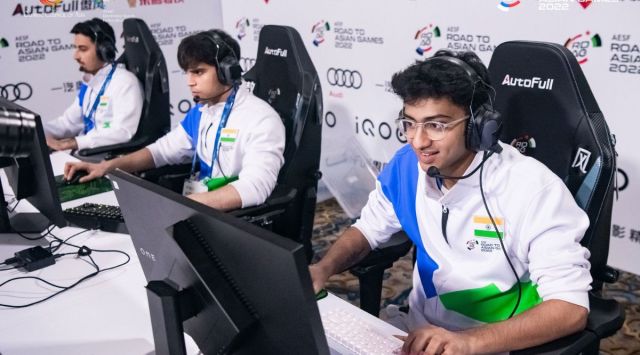By Arun Kumar Shrivastav
The world of esports is rapidly turning numerous young players to millionaire status every month. Over the last five years, India’s online gaming sector has experienced substantial growth. Today, several esports players in India have achieved millionaire status, thanks to their extensive subscriber base and successful streaming careers.
But what is remarkable for these video games and their players is the inclusion of esports into the mainstream sports arena. In Asian Games 2023 held in Hangzhou, China, there were seven categories of esports with those many gold, silver, and bronze medals to be won. Esports would be one of the 41 medal sports for the Asian Games 2026, scheduled to take place in Aichi-Nagoya, Japan.
As the world witnesses the growing popularity of esports, its inclusion in the prestigious Asian Games not only validates its status as a competitive discipline but also underscores the global acceptance of electronic sports. Esports has come a long way since its debut at the Asian Games 2018 in Jakarta, Indonesia, where it was featured as a demonstration sport.
Building on that success, the Asian Games 2023 in Hangzhou saw seven competitive titles, including Arena of Valor Asian Games Version, Dota 2, Dream Three Kingdoms 2, FIFA Online 4, League of Legends, PUBG Mobile Asian Games Version, and Street Fighter V: Champion Edition. Of the seven gold medals across various titles, including online football and multi-player battle arena games, China won 4, South Korea 2, and Thailand 1.
China clinched the first-ever esports gold medal at the Asian Games 2023, marking a significant milestone in the esports community’s pursuit of Olympic recognition. The Chinese esports team, comprising five talented gamers, emerged victorious in the “Arena of Valor” competition, triumphing over Malaysia in a closely watched playoff. Despite China’s regulatory measures aimed at curbing excessive gaming since 2021, the fervent enthusiasm of home fans at the Hangzhou Esports Centre underscored the nation’s unwavering support for esports.
Tapping furiously on their mobile screens amidst electrifying music and live commentary, the players engaged in a riveting best-of-three clash that lasted 45 minutes, captivating audiences and challenging traditional notions of athleticism.
Prior to China’s gold medal win, Thailand had secured the Games’ first esports medal by defeating Vietnam in the bronze playoff. India, a burgeoning hub for esports, fielded a 15-member esports team for the Asian Games 2023, competing in Dota 2, FIFA Online 4, Street Fighter V, and League of Legends. Although India did not win any esports medal at the last Asian Games, it remains a significant market for game developers and esports players.
A recent report by India Today throws spotlight on Indian women in esports, which is traditionally seen as a male-dominated space. Women gamers and gaming creators are emerging as influential figures, challenging stereotypes and reshaping the landscape of the video gaming industry in India.
The ‘Female Gamers in Asia’ report by Niko Partners reveals an upward trajectory for the female gamers market in Asia. Currently constituting 37% of total gamers, this demographic is experiencing an impressive annual growth rate of 11%, nearly double that of new male gamers entering the market.
Female gamers are not just players, they are key contributors to the industry’s revenue, accounting for approximately 23.5% of the total income generated in the Asian games market. Projections suggest that this segment has the potential to become more than double in size in the coming years, inching closer to achieving gender parity within the gaming community.
A pan-India survey conducted as part of the “Leveling up: State of India Gaming FY’23” report by Lumikai in collaboration with Google provides additional insights, indicating a shifting male-to-female ratio of roughly 60:40, with an increasing number of gamers hailing from non-metro regions.
These gaming trailblazers, with their dedication, talent, and resilience, are not only shaping the future of esports but also inspiring countless others to pursue their passions and break barriers within the industry.
Esports, casual digital gaming, and real money gaming (RMG) are distinct categories often confused with each other. Casual digital gaming is informal interaction with video games, while RMG, including fantasy games, involves making deposits with the expectation of winning. Esports, however, features skilled players competing for prize money and global recognition.
To help esports thrive in India, it needs local tournaments where players can train and compete, similar to how regional competitions, such as Ranji Trophy, are crucial for mainstream sports. In India, startups like Gamerji and Tournafest are supporting grassroots Esports tournaments. As talented Esports players emerge from these events, they’re likely to gain fans, making esports as entertaining as traditional sports. (IPA )


